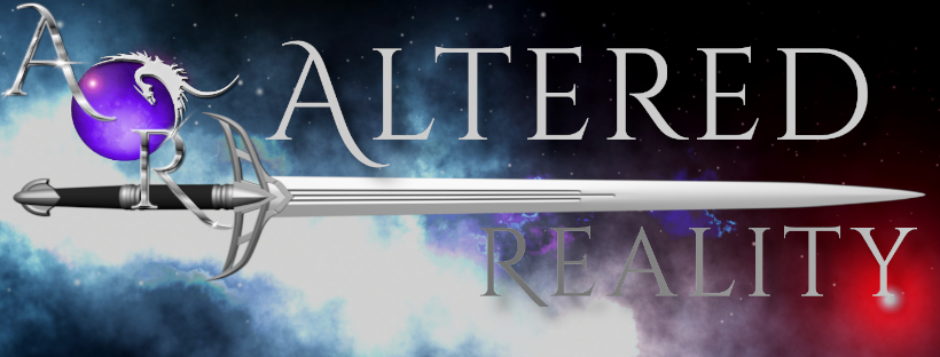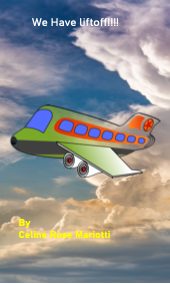The Meganic’s Guide for Sanding Spacecraft
Kelly Kurtzhals Geiger
I bring my haversack to the dock as my repair, the Kypernia, limps home through the black sea of stars, though this isn’t really her home. Exoks prefer the open spaces far from planets. This ship has requested me specifically which isn’t unusual except that I haven’t done her repairs before, and hardly any ships request me because most everyone has a bias against female meganics. I’m lucky to get the scraps the pilots toss my way after I do them favors.
I used to be scared of the exoks, especially when they spread their wings and point their needle-sharp noses down for landing like some kind of chthonic deity. The Kypernia makes eye contact with me to center her trajectory as she dive bombs the dock. She can’t help it. She’s broken now, until I can fix her.
The pilot maneuvers the ship’s jutted jaw, modified into a cockpit, to angle her straight. She hits the sea with only the slightest splash. This pilot knows his clicks and clacks, as they say. Exoks communicate in sonic registers, and early discoverers colonized their language. The pilot pulls the massive beast into the dock and I grasp the anchor to fit it around the bottom tip of her forked tail. Not that she’s going anywhere without the help of a taxi launcher to get her airborne again, but I’m forced to follow regulation. All the exok ships come into Port Hannum with bright bruises on their battered armor, though it isn’t really their armor. They’re just organic ships of Theseus that have exited the void and entered the premeditated silence of consciousness. Some people say I read too much for a meganic, but there’s nothing else to do while I wait for a port of call.
“Time to retire this one, Ganny,” the pilot tells me as he disembarks. He takes off his helmet and tosses his wavy brown hair and then pats the ship on her steel pectoral with the condescension of a casual lover. “She’s fried.”
I’d like to say I’ll be the judge of that, but pilots outrank meganics and generally do judge when a ship gets retired. I’ve studied until my eyes turned black to become a pilot, but acceptance to take the test requires three referrals and even then, only eight trainees are chosen to become pilots in a single moon. Maybe next moon I’ll get my third referral. So far I only have two. Anyway, it’s all rigged.
I move in for inspection but first I rub my hand along the Kypernia’s scaled cheek. She closes her heavy-lidded eye at my touch and it’s hard not to feel for the poor thing. The wars don’t give the ships ennui, they can’t be bothered with battles between beings and only participate in exchange for consciousness. The ennui comes from the consciousness they’ve traded for their servitude.
“Good girl,” I tell her. She can’t understand words but can get the tones of voice. “Gonna fix you up good.”
The ship heaves a hydraulic hiss and the metal scales of her catalytic converter expand, exposing the more delicate organic scales beneath the exterior shell, her evolutionary conversion. I stand back to escape the fumes, though I have always secretly liked the smell of exok exhaust, sweet and musky like a leaky star. An exok can store fuel in its gaskets for hundreds of moons. They migrate to dying stars to feed from them, lured by the light. A process that cost their freedom when they were discovered near what used to be Alpha Centauri. The supernova was a feast for them, but also an opportunity for poachers. Exoks are now lured into battles by the flashing of the laser weapons affixed to their head gaskets, in essence, leading each other to their own doom.
The Kypernia sighs more gas and then I see it – a huge gash along her starboard side leaking ink-like blood in diasporic trails – and I understand what the pilot meant. I won’t be sanding her after all because she won’t sail again. Regulation requires I scrap her for parts, though the only parts worth scrapping are the carrier hull fastened to her protruding jaw to create a cockpit and the attached laser. The rest of her – fins, armor, her thrumming heart engine – are now food for bigger fish, as they say.
I don’t have to give her a last meal, but I’ve found full stomachs make exoks more amenable for the unanesthetized surgery to detach their recyclable parts. I hear her clicking as I move to the barrels of bright orange cawas, the multi-legged soft-shelled crustaceaids farmed to feed the warships. I don’t translate. She’s begging for her life because we all beg for our lives in the end and there’s nothing anybody can do about it, least of all me.
I enter the hull and lift the gate to toss the screeching cawas into the Kypernia’s gullet. The gates provide a barrier to keep pilots from getting sucked into the exoks’ fiery bellies mid-flight. The cawas scream high-pitched terror when I heave them into the chute. The Kypernia is silent, which I take as a good sign, until projectile cawas hit my back when the ship spits them back at me. Strange. I’ve never seen an exok refuse a meal, especially after a battle. I heard she won this one, but I don’t follow the broadcasts as much as I should. Wars confuse me.
I gather the flopping orange fish back into their bucket to save them for another more amiable exok, because there’s no sense wasting a perfectly good klatch of cawas, when I notice the unusual pattern of the Kypernia’s clicks. I pause to listen this time.
“Save her,” she’s saying. Not, “save me,” as I’d expect, as all of them say or some derivation thereof. I listen again. “Save her,” the Kypernia repeats.
The sound fills me with wild surmise as the realization dawns on me. I should’ve guessed why this exok requested me specifically, though I’ve never done her body work before.
“You help.”
Not a good sign if the exoks are onto me already.
“Please.”
I move round back to the Kypernia’s tail. I lift the heavy fin and reach my arm inside until my hand hits something hard. I shove around and pull. The stone-like egg flops onto the tarmac, sloppy with slimy afterbirth. I glance around and tuck the thing in my haversack before anybody has a chance to notice.
The Kypernia shudders, her peristaltic pumps involuntarily wracking her body in convulsions. I return to her closed eye, its lid about a full meter taller than my whole body. “I got her,” I say, and I think the ship understands me. She lets go.
I make haste of the recyclables. The work becomes exponentially easier once the subject has deceased. I stuff a few wriggling cawas in my pocket, sure to crack their heads first to keep them from nibbling my thighs.
“You retire that old barge, Ganny?” The pilot leans against one of the gallery tool lockers with his bedroom smile.
“Yes, sir.” I snap off a sharp salute. He thinks I’m going home with him. I’m not. Not this time, even though it’ll probably cost me one of my two pilot test referrals.
My cavern on the outskirts holds heaps of scrap metal and unwanted junk, shoved in piles and crevices. Nobody comes here, which is how I like it.
The foundling flies out to meet me, lips gaping to kiss the thin air. “Fet! Get back inside!” I shout. Duly chastised, the Fetuma II retreats back into the darkness, her forked tail drooped. I don’t mean to be sharp with her, there’s nobody around for hectometers, but she’s got to learn to be careful.
I flick the light and find the Fet huddled in a crowded corner between piles of sagging boxes. I toss her one of the cawas and she snaps and swallows it whole.
She emerges when I set down the haversack and roll the egg out onto the cracked cement floor, and then swims gleeful circles around it. I smile, though I’m a bit brittle. I’ll get over it.
I never really wanted to be a pilot anyway.
![]()






